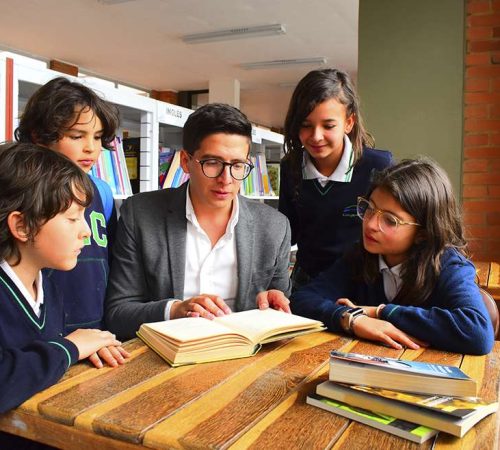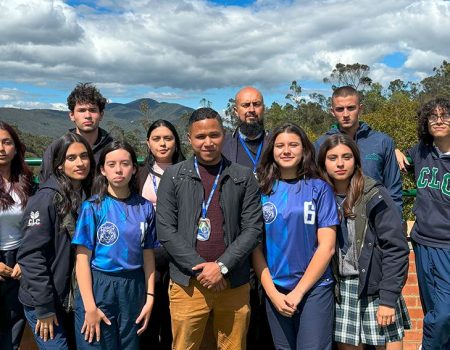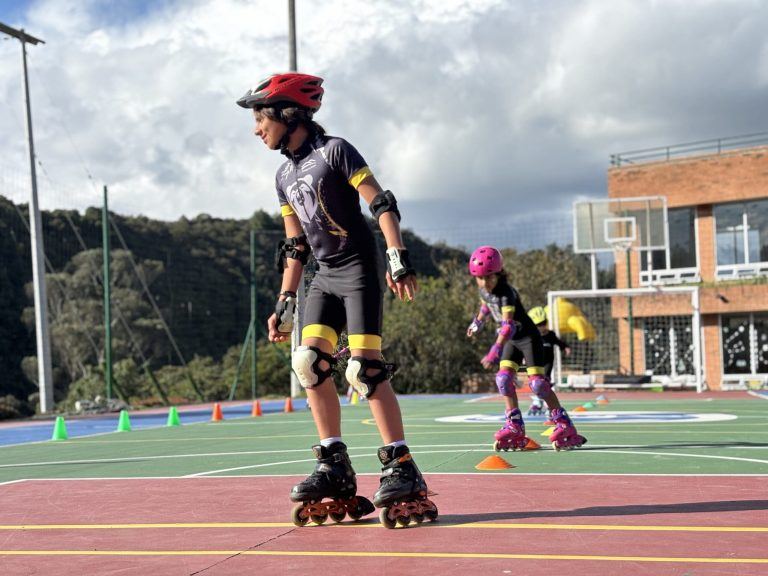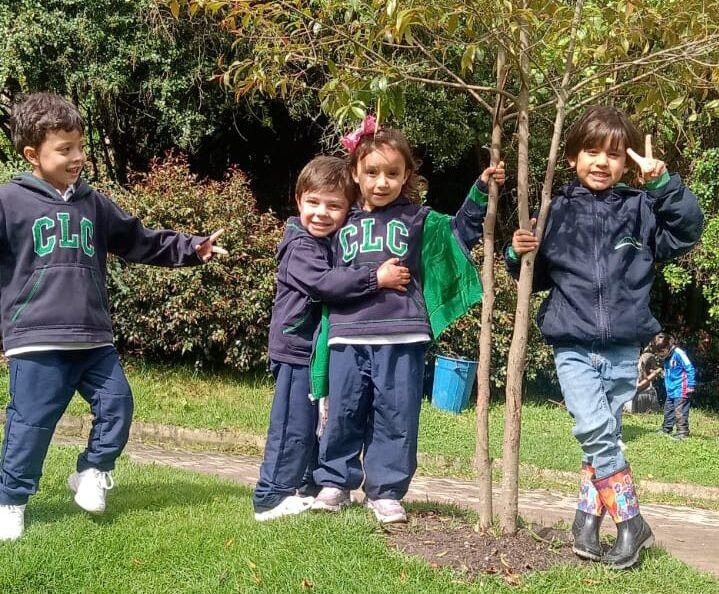The pedagogical model of Colegio La Colina, known as "Active Pedagogy," was designed as a distinctive proposal from other institutions, including four foundational principles. These are centered on the human being, their happiness, the trust in educating, and the possibility of constructing their life project (Personal and Social Dimensions) and experimentation and socialization (Academic Dimension) as strategies for students—children, adolescents, and young people—to acquire meaningful learning inside and outside the classroom. These four foundations are: Humanism, Constructivism, New School, and Project Pedagogy (Classroom Projects).
From each, some of their proposals were extracted to structure a set of pedagogical tools and strategies that have led La Colina to become a recognized institution in the national educational field.


One of the most important aspects drawn from the New School (Activist Model) for "Active Pedagogy" is the possibility of experimentation as a means to approach concepts, through teamwork (cooperation), distinguishing the developmental stages of students. Here, an important process of educational innovation was achieved at La Colina by including socialization as a means to consolidate concept construction. Additionally, the student is seen as the protagonist of the class, through the relationship of learning/daily life/real contexts. It is also noted that students come to school because they need support in their training process, consolidating themselves as critical beings, not just critics. experimentación como un medio para el acercamiento a los conceptos, a través del trabajo en equipo (cooperación), distinguiendo las etapas del desarrollo de los estudiantes. Aquí se logró un importante proceso de innovación educativa en La Colina al incluir la socialización como medio para consolidar la construcción de un concepto. Además, el estudiante es visto como protagonista de la clase, a través de la relación aprendizaje/cotidianidad/contextos reales. Sumado a lo anterior, se tiene en cuenta que los alumnos vienen a la escuela porque necesitan un aporte en su proceso de formación consolidándose como seres humanos críticos, no criticones.
From constructivist theories, La Colina's pedagogical model includes the possibility for teachers to adopt "Active Pedagogy" out of personal conviction, so that they can then start constructing curricula and planning by adding their imagination, creativity, and experiences acquired in other institutions. Likewise, without taking away the protagonism from the students, they participate in the development of activities, making them enjoy them more, while generating educational environments based on trust and educating from affectivity. Similarly, the promotion of equality among students and learning in real contexts was adopted. It means that it's not only important to internalize knowledge but also to know how to apply it in daily life.

From Humanism, the PA includes the relationship established between teacher and student. On one hand, teachers understand that in La Colina's model, the protagonists of the class are the students. They are the ones who experiment to approach the concept through socialization. Additionally, they promote cooperation in the classroom as a strategy to encourage those whose skills are less developed and to further qualify those who excel in classroom work. Similarly, La Colina’s teachers must create spaces that allow for freedom and creativity so that students can find their true selves. This goes hand in hand with the educator needing to change their attitude and thinking regarding allowing students to act and accepting the fact of not being the central figure in the classroom. Finally, the La Colina teacher must be someone interested in their students, considering the three dimensions: personal, social, and academic, to view them as human beings who live and feel, and are in school because they needed to form themselves as citizens. This is summed up by the pedagogical view of the school as “… forming happy human beings capable of making those around them happy.”

Last but not least, some principles from Project Pedagogy (Classroom Projects) have been included in the PA. Regarding meaningful learning, through classroom projects at La Colina, students build knowledge through social interaction and use it to solve problems and understand various sociocultural contexts, considering prior knowledge and experiences as aids in this learning process. It is understood that it is through action that the student makes this construction. Classroom projects facilitate the development of children, adolescents, and young people as unique, autonomous, and free individuals. They provide tools for learning to socialize and align their behaviors with those of others. During the construction, development, and completion of the classroom project, students stop being passive receivers of knowledge and become active constructors in the learning process.